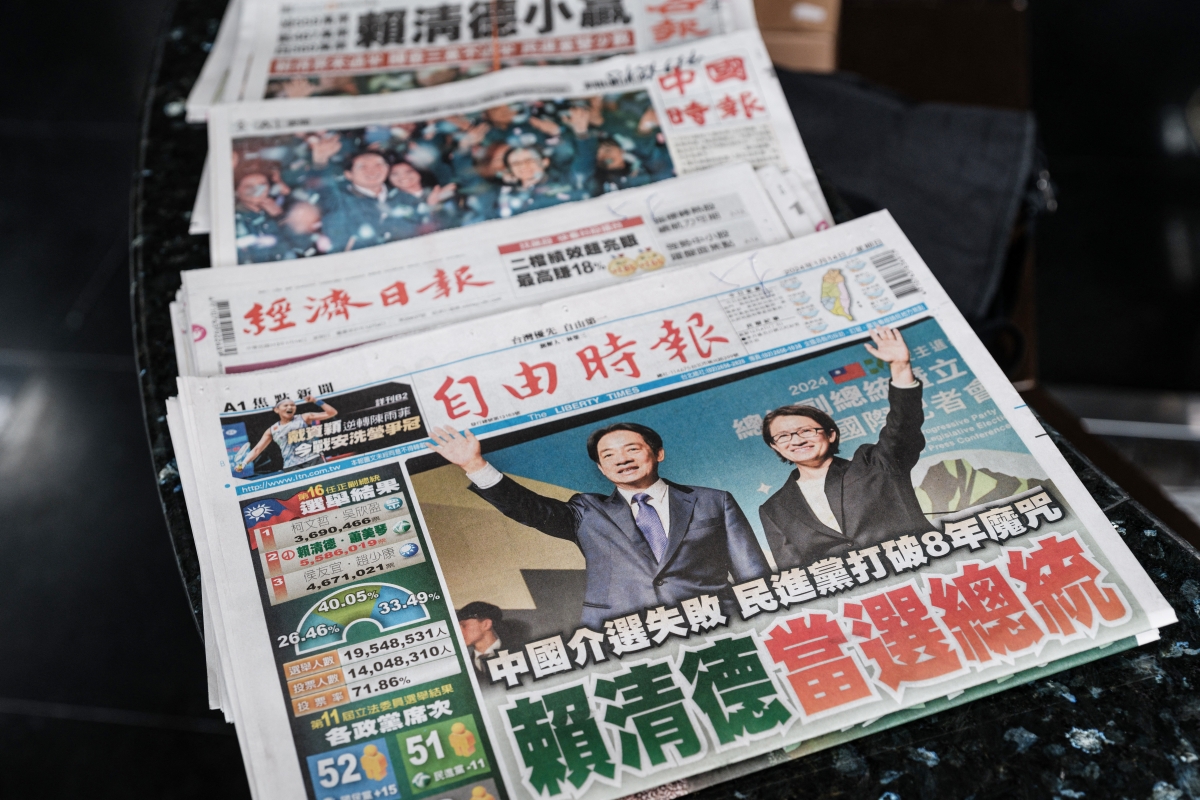New Report | The Geopolitical Implications of the Taiwanese Elections for China, the U.S., and the World

NEW YORK; January 16, 2023 – Asia Society Policy Institute (ASPI) has published a new report entitled “The Geopolitical Implications of the Taiwanese Elections for China, the U.S. and the World.” The author, Simona Grano, is a TOY Senior Fellow on Taiwan at ASPI’s Center for China Analysis.
“The DPP [Democratic Progressive Party] administration, despite having disappointed a big part of the electorate, has nevertheless managed to remain popular and be elected for a third term, even though by a small margin,” writes Grano. “Such levels of continued support are remarkable, considering that the party has been in power for the past 8 years and many voters have expressed a sentiment of wariness and fatigue towards the DPP and its failure in solving Taiwan’s most pressing issues”
According to the report, the DPP’s victory means that President-elect Lai will increase Taiwan’s efforts to liaise with like-minded countries and will maintain President Tsai Ing-wen’s “low-key" approach to cross-Strait issues. “At the same time, Lai has committed to upholding four pledges that outgoing President Tsai Ing-wen defined in 2021, namely: defending Taiwan’s freedom and democracy, safeguarding the island’s sovereignty, resisting pressure from Beijing, and making sure that the Taiwanese people will be able to choose the island’s future.”
During the presidential race, all three presidential candidates expressed support for preserving the status quo and staying “true to the Taiwan’s electorate’s very clear preference for maintaining the island’s de facto independence” and fading desire for “reunification” with the mainland, especially among younger generations.
In Taiwan’s parliament, the Kuomintang (KMT) gained 15 seats, the DPP lost 11, and the Taiwan People’s Party (TPP) has managed to maintain 3 at-large seats. “A divided legislature presents the ruling administration with problems when passing new laws or budgets and could lead to a paralysis in governing the country,” writes Grano. “It will render any decision and related approvals more complicated and could potentially hamper Taiwan’s relationship with the U.S., which would see Taiwan challenged by a paralysis of its legislative process and a slow but steady weakening of its military modernization plans, much supported by the U.S.”
The report notes that the PRC has repeatedly expressed its preference for KMT governance and has used a number of strategies to influence previous elections. More recently, it has turned to disinformation and misinformation campaigns. “For instance, it has spread rumors of Hsiao Bi-Kim being a U.S. citizen and therefore not being eligible to run for the Vice-Presidency. Deepfake videos of DPP candidates and fake news about their eligibility are among the most common forms of disinformation exposed by fact-checkers.” writes Grano.
The report concludes that the CCP will likely wait for the results of the U.S. presidential elections in November before launching any new strategies towards Taiwan. However, “in the near-term, before Lai’s inauguration in May 2024, China will likely increase its rhetoric and military intimidation. After a powerful but short display of military might, we should expect a continuation and possible expansion of previous strategies used by Beijing.”
Read the full report here. To request an interview with Grano, email [email protected].